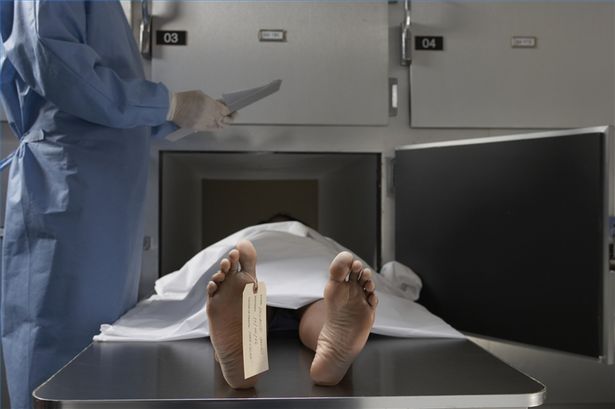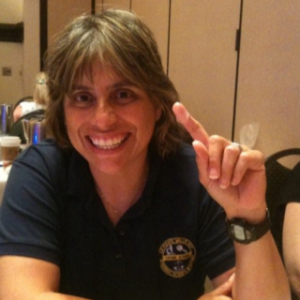
It is believe by many, and often lived out in reality, that entering the death investigation field is not easy. In fact, its not even a ‘start at the bottom and work your way up system’. I understand that some agencies, like Clark County NV. are doing it right and has a bottom up training program. However, most Coroners and Medical Examiners offices are a closed circulatory system. Its more of a who you know than what you know.
I did not really understand this until a couple of years ago when I start speaking and training across the country. I, like most of my peers across America, am a living product of the Good Ole Boys Club. I have my job because I migrated from an LEO position, to detective, to death investigator, to Coroners office. Could I get a job today? Would I get past an interview stage even with my experience , education, and alphabet name plate? Worse yet – if I didn’t have the alphabet where could I start?
National standardization is a step forward in producing opportunities for new comers as it gets rid of the “hiring a retiring friend” system. However, these standards are still voluntary, and in some instances not possible due to limitations of money, resources, or dare I say it – a willingness to change!
So, what is a young man or woman to do if they are interested in becoming a death investigator? What are their options? Do options even exist? I have found that many Coroner and ME Offices do not even allow volunteer help. They some how see it as an intrusion to a secret society of death. How could we allow volunteers to work here – what if they see a dead person, there could be law suits.
My best advice to those wanting to enter death investigation, decide exactly what job function you want and see what the qualifications are in your area. Then find out the hiring process. If it can’t work for you, then if you really want that job, you may have to move to an area that gives you the greatest opportunity.
What is a Medicolegal Death Investigator?
The role of the medicolegal death investigator is to investigate any death that falls under the jurisdiction of the medical examiner or coroner, including all suspicious, violent, unexplained and unexpected deaths. The medicolegal death investigator is responsible for the dead person, whereas the local law enforcement jurisdiction is responsible for the scene. The medicolegal death investigator performs scene investigations emphasizing information developed from the decedent and determines the extent to which further investigation is necessary. Medicolegal death investigators should have a combination of education and skills encompassing areas of medicine and law.
- Who can become a Medicolegal Death Investigator?
There are no formal requirements to become a medicolegal death investigator. Each coroner and medical examiner office has different hiring practices. A medicolegal death investigator must be knowledgeable of local, state and federal laws. In addition, a medicolegal death investigator must be the most medically knowledgeable person at the scene of the crime to determine if further investigation is necessary. - Do I have to have a degree?
There are no formal educational requirements specifically for medicolegal death investigation. Any degree program dealing with Forensic Science, Natural science, Anthropology, Nursing, or any other medically related field would be useful. There are several established training courses available throughout the country that teach the basic information needed in order to perform a thorough, competent medicolegal death investigation. - How much money will I make as a Medicolegal Death Investigator?
An investigator’s salary will be determined by the jurisdiction and amount of experience the medicolegal death investigator has. Salaries and benefits vary throughout the United States.
What does a Forensic Science Technician do?
At a crime scene, a forensic science technician will typically do the following:
- Walk through the scene to determine what and how evidence should be collected
- Take photographs of the crime scene and evidence
- Make sketches of the crime scene
- Keep written notes of their observations and findings, such as the location and position of evidence as it is found
- Collect all relevant physical evidence, including weapons, fingerprints, and bodily fluids
- Catalogue and preserve evidence before transferring it to a crime lab. Forensic science technicians may use tweezers, black lights, and specialized kits to identify and collect evidence. In addition to processing crime scenes, they may also attend autopsies.
In laboratories, a forensic science technician will typically do the following:
- Identify and classify crime scene evidence through scientific analysis
- Explore possible links between suspects and criminal activity using the results of chemical and physical analyses
- Consult with experts in related or specialized fields, such as toxicology, about the evidence and their findings
- Reconstruct crime scenes based on scientific findings
Forensic science technicians reconstruct crime scenes by carefully studying information gathered by investigators and conducting scientific tests on physical evidence. For example, lab technicians may look at photographs of blood splatter patterns and conduct ballistics tests on bullets found at the crime scene to determine the direction from which a shot was fired.
Forensic science technicians who work in laboratories use chemicals and laboratory equipment such as microscopes when analyzing evidence. They also use computer databases to examine fingerprints, DNA, and other evidence collected at crime scenes in order to match them to people and things that have already been identified. Most forensic science technicians who perform laboratory analysis specialize in a specific type of evidence analysis, such as DNA or ballistics.
All forensic science technicians prepare written reports that detail their findings and investigative methods. They must be able to explain their reports to lawyers, detectives, and other law enforcement officials. In addition, they may be called to testify in court about their findings and methods.
What is the workplace of a Forensic Science Technician like?
Forensic science technicians must travel to different locations around a city or region because crimes can occur anywhere. Crime scene investigation can be distressing and unpleasant because investigators see many disturbing sights. Crime scene investigators work staggered day, evening, or night shifts and may have to work overtime because they must always be available to collect evidence.
This Episode’s Guest
 Terri Armenta
Terri Armenta

Site tags
coroner,police training, darren dake,sheriff,deputy,coroner association,murder scenes,auto fatalities,csi,first responders,autoerotic fatalities,become a coroner,forensic science crime scene investigation,forensic science crime,scene investigator,forensic training,forensics training,how to be a crime scene investigator,how to become a death investigator,how to become a medical examiner,how to become a medical examiner investigator,medical examiner investigator training,medical investigator training,medicolegal death,medicolegal death investigator training,murder scenes,pictures of murder scenes,murder,real murder crime scenes,traffic deaths,traffic fatalities,what does it take to be a coroner,what does it take to be a criminal investigator,firefighter,fire training,firefighter training,autoerotic fatalities,become a coroner,coroner information,crime scene clean up training,crime scene cleaning training,crime scene cleanup training,crime scene investigation,crime scene investigation classes,crime scene investigator courses,crime scene investigator school,crime scene jobs,crime scene photography,crime scene photography training,crime scene technician,crime scene technician training,crime scene training,criminal investigation,criminal investigator,criminal justice,criminal justice forensic science,criminal justice forensics,criminal scene investigation,death crime scenes,death investigation training,death investigator training,death investigators,forensic death investigator,forensic investigator,forensic photography, crime scene clean up,crime scene bio-hazard, using plants in criminal investigation,forensic botany,dr.jane bock,death investigator magazine,dr judy melinek,badge of life,american college of forensic examiners,acfei,american board of medicolegal death investigators,abmdi,matthew lunn,underwater crime scene,mike berry,online learning,lopa,cultural diversity,anger de-escalation
1 comment on “Overcoming the ‘Good Ol’ Boys Club’”
Leave a Reply
You must be logged in to post a comment.

Great topic, Terri and Darren. I have my biases that developed during my attempts to train, and more importantly, my attempts to network and get solid information in how to train. I have been grossly disappointed in the unwillingness in Medical Examiner offices to speak to me about their systems, their requirements, and how to become viable as an applicant. Literally devoid of contact, returning letters, emails, and answering me in my honest reach out. The local ME offices here in Texas have been most cloistered in their receptivity to my very professional inquiries.
My concern was to jump into training of any kind just because I thought it would apply, and then run the risk of those classes, at great expense, being irrelevant or moot. I need the skeleton of training and knowledge to know how to gain that. No ME office here offs volunteer positions. One MEO allows an internship, but only to Junior or Senior undergrad students who need to fill their internship quota. These students may or may not even be interested in MLDI or FS Tech. As it turns out this one MEO pretty much hires only their former interns, or semi-retired LEOs that they know personally, regardless of their credentials.
Sadly, I have decided to stop pursuing the MLDI profession given these roadblocks, and the unwillingness to even have a conversation, and offer my background in dentistry, and clinical professional background. I would take classes if I knew it would bear fruit to even have “permission” to talk to the Good Ol’ Boys. Such is not the case. I would have volunteered to put myself into a position of familiarity with the hiring authorities, and to “prove” my capabilities as a Type “A” thinker- methodical and organized.
The crazy thing is, the Job Description requirements are scant and seem to be irrelevant compared to what is REALLY required to get the job- the mystery is finding out what that “thing” is.
Texas is unusual in its death investigation laws. Only 11 counties have an ME and are investigated by MLDIs. All other counties are handled by LE and/or Justice of the Peace (an untrained medical and legal person) who was elected into the positions (by popularity, often). So breaking into any paid position in one of the 11 counties have no unpaid ladders to climb. Not sure how to break in.
Good topics, but still a huge void I cannot see being breached.
Thank you, Darren and Terri.